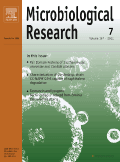
MICROBIOLOGICAL RESEARCH
Scope & Guideline
Leading the Charge in Microbial Advancements
Introduction
Aims and Scopes
- Microbial Ecology and Interactions:
Research on the ecological roles of microorganisms, including their interactions with plants, animals, and other microbes. This includes studies on rhizosphere microbiomes, endophytes, and the effects of microbial communities on plant health. - Microbial Pathogenesis and Resistance:
Investigation into the mechanisms of microbial pathogenicity, antibiotic resistance, and host-pathogen interactions. This includes studies on virulence factors, resistance mechanisms, and the impact of microbial infections on health. - Biotechnological Applications of Microorganisms:
Exploration of microbial applications in biotechnology, including biocontrol, bioremediation, and the production of bioactive compounds. Research often focuses on enhancing agricultural productivity and sustainability through microbial interventions. - Microbial Metabolism and Physiology:
Studies investigating metabolic pathways in microorganisms, including the regulation of secondary metabolites, biofilm formation, and stress responses. This area emphasizes understanding how environmental factors influence microbial physiology. - Synthetic Biology and Genetic Engineering:
Research on the genetic manipulation of microorganisms for enhanced production of valuable compounds, including pharmaceuticals, enzymes, and biofuels. This includes CRISPR technology applications and metabolic engineering.
Trending and Emerging
- Microbiome Research and Health:
There is a growing focus on the human microbiome and its implications for health, disease, and treatment strategies. This includes studies on gut microbiota, its role in immunity, and its influence on chronic diseases. - Plant-Microbe Interactions for Sustainable Agriculture:
Research on beneficial plant-microbe interactions, especially those involving plant growth-promoting rhizobacteria (PGPR) and mycorrhizal fungi, is on the rise as agriculture seeks sustainable solutions to enhance crop resilience. - Biocontrol Mechanisms and Natural Products:
The exploration of biocontrol agents derived from microbial sources and their natural metabolites is trending, particularly in the context of integrated pest management and sustainable agriculture. - CRISPR and Gene Editing in Microbiology:
The application of CRISPR technology for gene editing in microorganisms is increasingly popular, allowing for targeted modifications that enhance microbial functions and applications in biotechnology. - Microbial Contributions to Bioremediation:
Research focusing on the use of microorganisms for bioremediation of contaminated environments is gaining momentum, with studies highlighting novel microbial strains and their degradation pathways.
Declining or Waning
- Traditional Antibiotic Discovery Methods:
There has been a noticeable decline in papers focusing on traditional antibiotic discovery methods, as the field shifts towards innovative approaches such as phage therapy and the use of natural products. - Pathogen-Specific Studies:
Research centered around specific pathogens, particularly those that have been extensively studied, is becoming less frequent as the focus broadens to include holistic microbial community studies and their interactions. - Single-Microbe Studies:
Studies focusing solely on the characteristics of individual microbial species are waning, with a growing emphasis on understanding microbial interactions within communities and ecosystems. - Environmental Microbiology in Isolated Contexts:
Research that examines environmental microbiology in isolation, without considering broader ecological interactions, is decreasing as researchers recognize the importance of integrated approaches.
Similar Journals
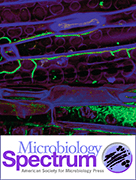
Microbiology Spectrum
Leading the charge in microbiology and immunology research.Microbiology Spectrum is a prominent peer-reviewed journal published by the American Society for Microbiology, dedicated to advancing the field of microbiology through the dissemination of high-quality research. Since its inception in 2013 and continuing until 2024, the journal has established a strong presence in key domains such as microbiology, immunology, cell biology, and ecology, achieving impressive quartile rankings including Q1 in Infectious Diseases and Q1 in Immunology and Microbiology as of 2023. With an emphasis on open access to its scholarly content, Microbiology Spectrum aims to foster collaboration and knowledge sharing among researchers, professionals, and students alike. The journal's scope encompasses a diverse range of topics pertinent to the field, making it an essential resource for anyone involved in microbiological research and its applications. Researchers looking to publish their findings in a respected journal will find Microbiology Spectrum's robust impact factor and Scopus rankings serve as testament to its significance and influence within the academic community.

mLife
Driving impactful discoveries in the diverse landscapes of microbiology.Welcome to mLife, an emerging journal at the forefront of microbiological research published by the esteemed WILEY in China. With its ISSN 2097-1699 and E-ISSN 2770-100X, mLife serves as a vital platform for scholars and practitioners aiming to advance their understanding of microbial sciences. With an impressive Q2 ranking in the Microbiology category and a Scopus rank of 143 out of 182, mLife is quickly establishing itself as a valuable source of cutting-edge research. The journal, covering a range of innovative topics from immunology to environmental microbiology, provides an engaging venue for disseminating high-quality research findings aimed at addressing real-world challenges. Authors and readers alike benefit from its accessibility features that encourage scholarly collaboration and information sharing. As we converge on the rich microbial landscapes from 2022 to 2024, mLife is committed to fostering a community dedicated to rigorous research and impactful discoveries.
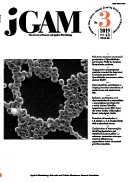
JOURNAL OF GENERAL AND APPLIED MICROBIOLOGY
Pioneering research that transforms our understanding of microbes.JOURNAL OF GENERAL AND APPLIED MICROBIOLOGY, published by the MICROBIOL RES FOUNDATION, is a vital resource in the fields of applied microbiology and biotechnology, as well as in diverse medical applications, serving an academic community dedicated to advancing microbial science. Established in 1955, this journal has a rich history of disseminating innovative research and insights into the intricate world of microorganisms. With an ISSN of 0022-1260 and an E-ISSN of 1349-8037, the journal maintains high scholarly standards and robustness, reflected in its 2023 Scopus rankings placing it in the Q3 and Q4 quartiles within its categories. While primarily based in Japan, the journal engages a global audience, offering valuable contributions that inform both theoretical perspectives and practical applications in microbiology. Despite being a non-open-access publication, it provides pivotal research findings essential for academics, professionals, and students alike, fostering a deeper understanding of microbial impact on health and the environment.
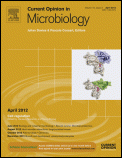
CURRENT OPINION IN MICROBIOLOGY
Unveiling groundbreaking findings in microbiological sciences.CURRENT OPINION IN MICROBIOLOGY is a prestigious academic journal published by CURRENT BIOLOGY LTD, dedicated to advancing the field of microbiology through timely and insightful reviews. With an ISSN of 1369-5274 and an e-ISSN of 1879-0364, this journal has established itself as a leading source of knowledge in various subfields, consistently achieving a Q1 ranking in Infectious Diseases and Microbiology for 2023. Operating from the United Kingdom, CURRENT OPINION IN MICROBIOLOGY serves a critical role for researchers, clinicians, and students alike by disseminating groundbreaking findings and fostering discussions that shape the future of microbiological research. The journal's rigorous selection process ensures that only high-quality articles are published, reflecting its strong impact factor and high percentile rankings across relevant Scopus categories. Although it does not follow an open-access model, its comprehensive scope and valuable contributions to the medical and scientific community underscore its importance as an essential resource for advancing our understanding of microbial sciences.
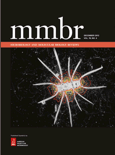
MICROBIOLOGY AND MOLECULAR BIOLOGY REVIEWS
Advancing the Frontiers of Microbial and Molecular ScienceMICROBIOLOGY AND MOLECULAR BIOLOGY REVIEWS, published by the American Society for Microbiology, is a premier journal dedicated to advancing the fields of microbiology and molecular biology. With an impressive impact factor reflective of its Q1 ranking in categories such as Immunology, Infectious Diseases, and Molecular Biology, this journal consistently showcases high-quality, peer-reviewed articles that contribute to the current understanding of microbial life and molecular mechanisms. Operating since 1997, the journal aims to bridge the gap between microbiological methods and molecular biology applications, making it an essential resource for researchers, professionals, and students alike. Readers can access content through various platforms, ensuring that the latest findings are readily available to the scientific community. With its esteemed reputation, MICROBIOLOGY AND MOLECULAR BIOLOGY REVIEWS remains a leading voice in the exploration of the life sciences, catering to a broad audience deeply invested in unraveling the complexities of microbial and molecular systems.

mSphere
Advancing microbial insights for a brighter tomorrow.mSphere is a leading open-access journal published by the American Society for Microbiology, dedicated to the dynamic fields of Microbiology and Molecular Biology. Since its inception in 2016, mSphere has rapidly established itself as a reputable source of scholarly research, achieving notable impact factors and excellence within the academic community. The journal ranks in the top quartile (Q1) amongst its peers in Microbiology, and Q2 in the field of Molecular Biology, demonstrating its significance and relevance through Scopus rankings—specifically, it holds the #42 spot out of 182 in the Microbiology category and #108 out of 410 in Molecular Biology. With an editorial commitment to advancing the understanding of microbial and molecular sciences, mSphere provides an accessible platform for researchers, professionals, and students alike to disseminate groundbreaking findings. The journal promotes rigorous peer-review and invites innovative contributions aimed at enhancing microbial research mobility and molecular exploration. Accessible openly since 2016, mSphere continues to thrive as an influential publication driving scientific dialogue and discovery in the microbiological sciences.
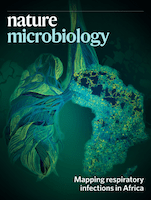
Nature Microbiology
Transforming Insights into Impactful DiscoveriesNature Microbiology is a premier journal published by NATURE PORTFOLIO that has firmly established itself within the realms of microbiological research since its inception in 2016. Based in the United Kingdom, this prestigious journal specializes in the intricacies of applied microbiology, cell biology, genetics, immunology, and medical microbiology, making it a cornerstone for academics and professionals alike. With an impressive Scopus ranking placing it in the top tier across various relevant categories—such as rank #3 in Genetics and #2 in Applied Microbiology—it underscores the journal’s commitment to high-quality, impactful research. Although it operates under a subscription model, Nature Microbiology's broad Open Access policy facilitates greater dissemination and visibility for its authors. The journal's objectives are centered around publishing cutting-edge advancements that enhance our understanding of microbial life, its interactions, and applications in health and disease. As a Q1 journal across multiple disciplines, it holds immense significance for researchers, professionals, and students enthusiastic about the latest innovations and breakthroughs in microbiology.
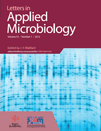
LETTERS IN APPLIED MICROBIOLOGY
Elevating Knowledge in Applied MicrobiologyLETTERS IN APPLIED MICROBIOLOGY, published by OXFORD UNIVERSITY PRESS, is a prominent journal in the field of applied microbiology, serving as an essential platform for researchers and professionals to disseminate innovative findings. With an ISSN of 0266-8254 and an E-ISSN of 1472-765X, this peer-reviewed journal has been contributing to the scientific community since 1985 and continues to engage with cutting-edge research through 2024. With its current Scopus ranking placing it in the 45th percentile of its category, specifically at rank #70 out of 127 in the Applied Microbiology and Biotechnology field, it underscores its significance in advancing knowledge and applications pertinent to microbial science. Although it is not open access, LETTERS IN APPLIED MICROBIOLOGY offers comprehensive insights aimed at enhancing the understanding of microbiological phenomena in practical scenarios, making it a valuable resource for both seasoned experts and emerging scholars.
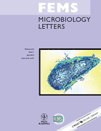
FEMS MICROBIOLOGY LETTERS
Unveiling the Secrets of MicrobiologyFEMS Microbiology Letters, published by Oxford University Press, is a prestigious international journal dedicated to advancing the understanding of microbiology through concise and impactful research articles. With an ISSN of 0378-1097 and E-ISSN 1574-6968, this journal encompasses a wide range of topics within the fields of genetics, microbiology, and molecular biology, achieving a notable Q3 quartile ranking in these categories as of 2023. As an essential platform for researchers, professionals, and students, FEMS Microbiology Letters invites submissions that contribute valuable insights into microbial behaviors, genetic mechanisms, and innovative methodologies pivotal in the study of microbiology. Although it is not an open-access publication, the journal's rigorous editorial standards ensure high-quality content that is relevant and significant to its audience, furthering scholarly dialogue and collaboration in the vibrant field of microbiological research.

Microorganisms
Innovating discoveries in microbiology and virology.Microorganisms is a leading open-access journal published by MDPI based in Switzerland, catering specifically to the rapidly evolving fields of microbiology and virology. Since its inception in 2013, the journal aims to foster the dissemination of high-quality research through its comprehensive and interdisciplinary platform, with a particular focus on both fundamental and applied microbiological sciences. Contributing to its esteemed reputation, Microorganisms holds a commendable Q2 ranking in the categories of Microbiology and Virology, as well as in Medical Microbiology, highlighting its significance in the academic community. With a consistent impact, evidenced by its rankings in Scopus—such as rank #25 in Virology and #56 in Microbiology—the journal serves as an invaluable resource for researchers, professionals, and students looking to stay at the forefront of microbiological research. As an open-access journal, Microorganisms ensures that vital research findings are readily available to a global audience, promoting collaboration and innovation in the study of microbial life and its implications for health and disease.